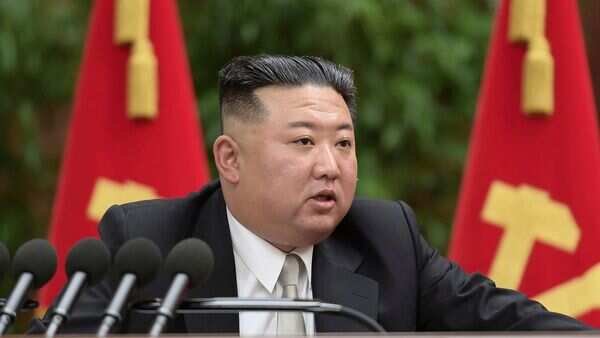Pyongyang: North Korean leader Kim Jong Un vowed to increase the production of nuclear warheads “exponentially” and build a more powerful intercontinental ballistic missile, state media reported Sunday, signaling deepening animosities with the United States, South Korea and others.
Kim’s statement at a key ruling party meeting was released hours after North Korea fired a ballistic missile toward its eastern waters, entering 2023 with another weapons test following a record number of missile firings last year.
“The currently established situation calls for our country doubling down our efforts to strengthen our military power overwhelmingly to safeguard our sovereignty, safety and basic national interest to cope with the dangerous military moves by the U.S. and other hostile forces that target us,” Kim said, according to the official Korean Central News Agency.
KCNA cited Kim as saying North Korea is compelled to boost the production “exponentially” to mass-produce tactical nuclear weapons.
It also said Kim has ordered the manufacturing of a new type of intercontinental ballistic missile with a swift, retaliatory attack capability. Kim also reportedly said North Korea plans to launch its first military spy satellite soon.
South Korea’s military detected Sunday’s launch from the North’s capital region around 2:50 a.m., the Joint Chiefs of Staff said in a statement. It said the missile traveled about 400 kilometers (250 miles) before falling into the water between the Korean Peninsula and Japan.
The Joint Chiefs of Staff called the launch “a grave provocation” that hurts peace and security on the Korean Peninsula and around the world. It said South Korea closely monitors North Korean moves in coordination with the United States and maintains a readiness to deal with any provocations.
The U.S. Indo-Pacific Command said in a statement that the launch highlights “the destabilizing impact” of North Korea’s unlawful weapons programs. It said U.S. commitments to defend South Korea and Japan “remain ironclad.”
North Korea test-fired more than 70 missiles last year. Some experts say the country eventually aims to boost its weapons arsenals and increase pressure on its rivals to win concessions such as sanctions relief.


















